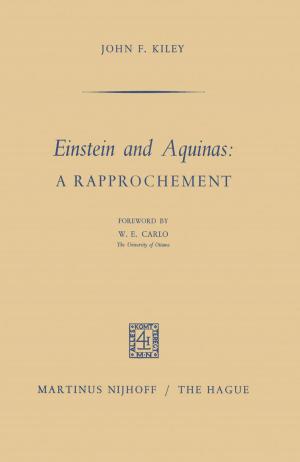The Nation in the History of Marxian Thought
The Concept of Nations with History and Nations without History
Nonfiction, Religion & Spirituality, Philosophy, Political, History| Author: | Charles C. Herod | ISBN: | 9789401013550 |
| Publisher: | Springer Netherlands | Publication: | December 6, 2012 |
| Imprint: | Springer | Language: | English |
| Author: | Charles C. Herod |
| ISBN: | 9789401013550 |
| Publisher: | Springer Netherlands |
| Publication: | December 6, 2012 |
| Imprint: | Springer |
| Language: | English |
This study is based upon the concept of nations with history and nations without history which was advanced in 1848/1849 in the pages of the Neue Rheinische Zeitung, a Cologne based German newspaper under the editorship of Karl Marx. This theory is presented in this study as a model of opposites; historic nations and non-historic nations, respec tively revolutionary nations and counter-revolutionary national groups which Engels and Marx associated with the philosophy of Hegel. As Marx and Engels saw it, Hegel had taught that nature and history abounded in opposites, and this was believed to be the essence of his dialectic. Marx liked this dialectic better than anything else in Hegel's thought and modified it to fit his own economic theory of history. In reality, however, there are no categories of opposites; certainly not in nature; no two colors are opposites; nor are any two times of the day, indeed nothing temporal, nothing living, nothing that is in process of becoming. ! It is only in human understanding that opposites are intro duced. In the history of ideas what has been a misunderstanding of Hegel's teachings has exerted a greater influence upon subsequent generations than Hegel's philosophy as he himself understood it. With Marx's development of the materialistic concept of history, the Volksgeist (Spirit of the Age), so pronounced in Hegel's work lost ground rapidly; first, because it was difficult to understand and second, because its mastery was hardly rewarding to anyone save scholars and philosophers.
This study is based upon the concept of nations with history and nations without history which was advanced in 1848/1849 in the pages of the Neue Rheinische Zeitung, a Cologne based German newspaper under the editorship of Karl Marx. This theory is presented in this study as a model of opposites; historic nations and non-historic nations, respec tively revolutionary nations and counter-revolutionary national groups which Engels and Marx associated with the philosophy of Hegel. As Marx and Engels saw it, Hegel had taught that nature and history abounded in opposites, and this was believed to be the essence of his dialectic. Marx liked this dialectic better than anything else in Hegel's thought and modified it to fit his own economic theory of history. In reality, however, there are no categories of opposites; certainly not in nature; no two colors are opposites; nor are any two times of the day, indeed nothing temporal, nothing living, nothing that is in process of becoming. ! It is only in human understanding that opposites are intro duced. In the history of ideas what has been a misunderstanding of Hegel's teachings has exerted a greater influence upon subsequent generations than Hegel's philosophy as he himself understood it. With Marx's development of the materialistic concept of history, the Volksgeist (Spirit of the Age), so pronounced in Hegel's work lost ground rapidly; first, because it was difficult to understand and second, because its mastery was hardly rewarding to anyone save scholars and philosophers.















